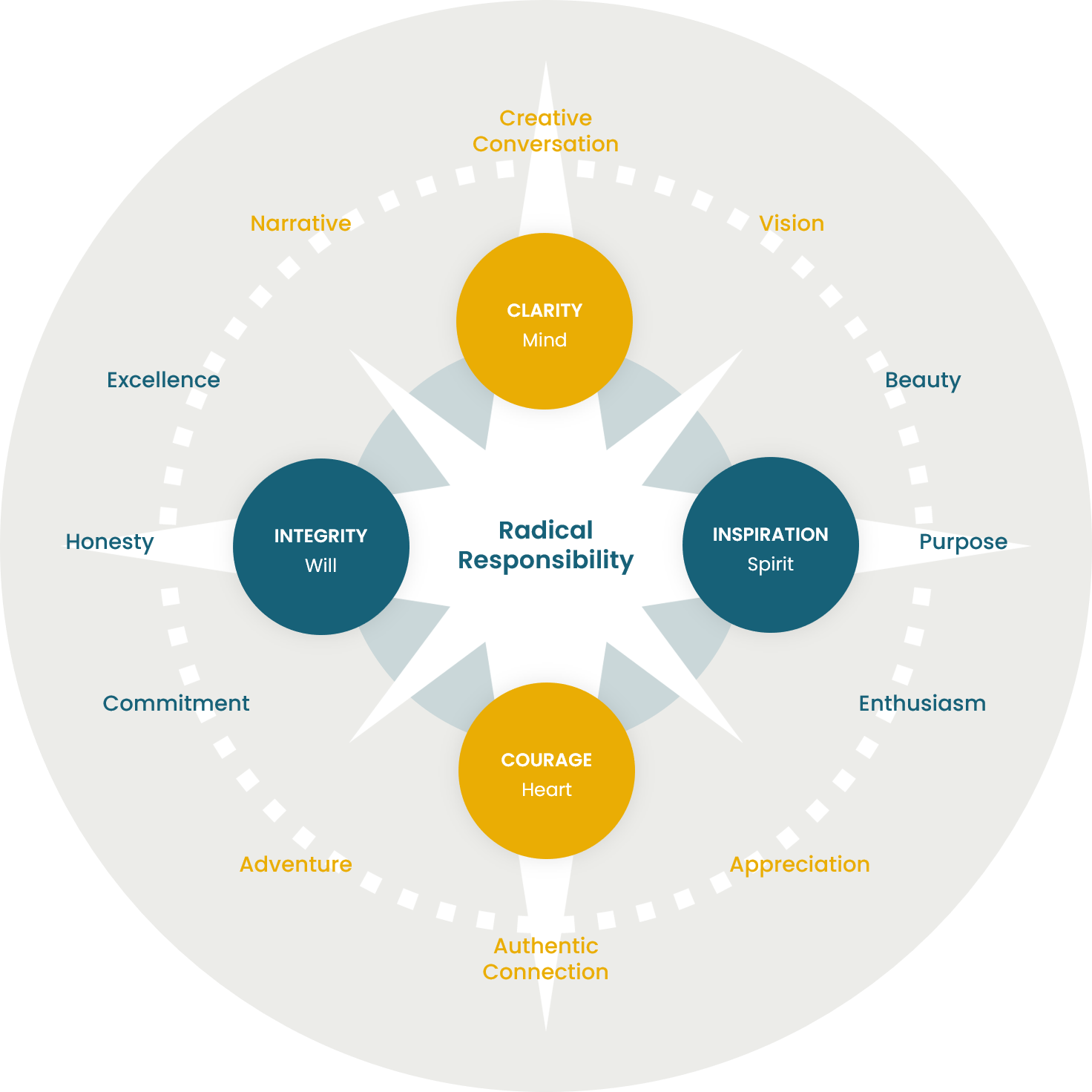Being a Person of Increase
Appreciation is a type of active perception—
a way of intentionally seeing through a lens of love, tuning into and revealing the beauty, grace, excellence and strength around us.
When we appreciate, we become what early 20th Century author Wallace Wattles coined “a person of increase.” Appreciating others helps them be their best more often. Appreciating ourselves increases our resilience, confidence, and capability. And appreciating life makes it richer.
The term “a person of increase” speaks to the generous nature of appreciation. Actively choosing to see, and thus amplify—versus stifle or ignore—the good in the world around us makes it that much more present in our experience.
That choice to appreciate takes both intention and attention. Especially when it’s hard—when life doesn’t present a face that is easy to like—our appreciation can be particularly transformative, revealing beauty and excellence that may have gone unseen, and therefore not fully expressed and/or experienced.
To be that person of increase, and activate the transformative power of appreciation more consistently in your life…
Acknowledge others.
People are lifted up by being seen and recognized for the value they bring—which can be as simple as noticing and commenting—especially when we call out the specifics of a job well done or an important insight or idea. Going a little deeper, we can acknowledge beyond what people do or produce to who they are—by calling out qualities of being like courage, calm, decisiveness, openness, or dedication. Our appreciation—whether it’s for doing or being—tends to increase people’s engagement, confidence, resilience, and ability to meet standards of excellence.
Often people in our lives do not fully see and appreciate their own strengths. When we are willing and able to be a mirror for them, showing them the great qualities we see, we may evoke a positive change in their self-perception, which can trigger a whole fountain of rising confidence and capability.
There are also people in our lives that we find difficult to appreciate. That’s often where the greatest potential for transformation lies. When we can find something positive, however small, to acknowledge in a “difficult” person, our heart opens to that person, creating possibilities for growth—in ourselves, the other person, and the relationship.
Believe in yourself.
Appreciation is as important to extend to ourselves as it is to others. Self-appreciation helps us become more resourced. It amplifies our ability to stretch and grow, because when our self-esteem is high, we’re more available to openly look at mistakes or shortcomings and learn from them.
Whenever I or a client need a lift out of insecurity into self-confidence—genuine self confidence, not the kind that is actually arrogance—I recommend a simple practice of self-appreciation. It may not be easy at first, but once over the hump of initial resistance, simply acknowledging one’s strengths and things we’re proud of can start the ball rolling toward a boost in self-image and self-confidence, and the positive impact in our world that comes from that.
See the Richness in Life.
An invitation to see and appreciate the richness of life falls into two general categories. The first is when life brings us roses, to smell them. When we give our attention to appreciating the every-day beauty and richness of life, that richness is amplified in our experience. How we feel about our lives is largely a function of how we choose to see them. Albert Einstein is quoted as having said “there are two ways to live your life. One is as though nothing is a miracle. The other is as though everything is a miracle.”
A second kind of invitation comes when life brings us thorns. There are circumstances in life that are very challenging to appreciate, let along accept. At times, what we see—both in the world around us, and in our own inner world—evokes pain, anger, frustration, and grief. This is when it’s hardest to practice appreciation, yet also potentially most empowering and transformative. It’s a rare person who hasn’t been dealt difficult or traumatic cards in life. Cancer, car accidents, betrayals, corporate downsizing—are all realities of life. And it’s important that we don’t pretend the hard stuff isn’t hard. But choosing to appreciate some small aspect of a difficult situation or relationship can help a gift to emerge. By seeing and taking advantage of a silver lining that might be available, we actually create the possibility for a transformed outlook and experience.
Questions to ponder, and if you have a journaling practice, to write about…
For who or what in your life could you express greater appreciation (especially if it’s not easy)? What difference would it make?
What are three things you can genuinely appreciate about yourself? What will you do with that self-appreciation?
More in the Power Pathways Series…
Being a Person of Increase is the twelfth in a series of posts exploring a compass-like wheel of twelve “power pathways”—avenues for expressing our power to be the creators and authors of our lives.
Read the whole series here →
Here’s the full wheel, connected conceptually and practically to radical responsibility and the four cardinal disciplines of conscious leadership – inspiration, integrity, courage, and clarity.


